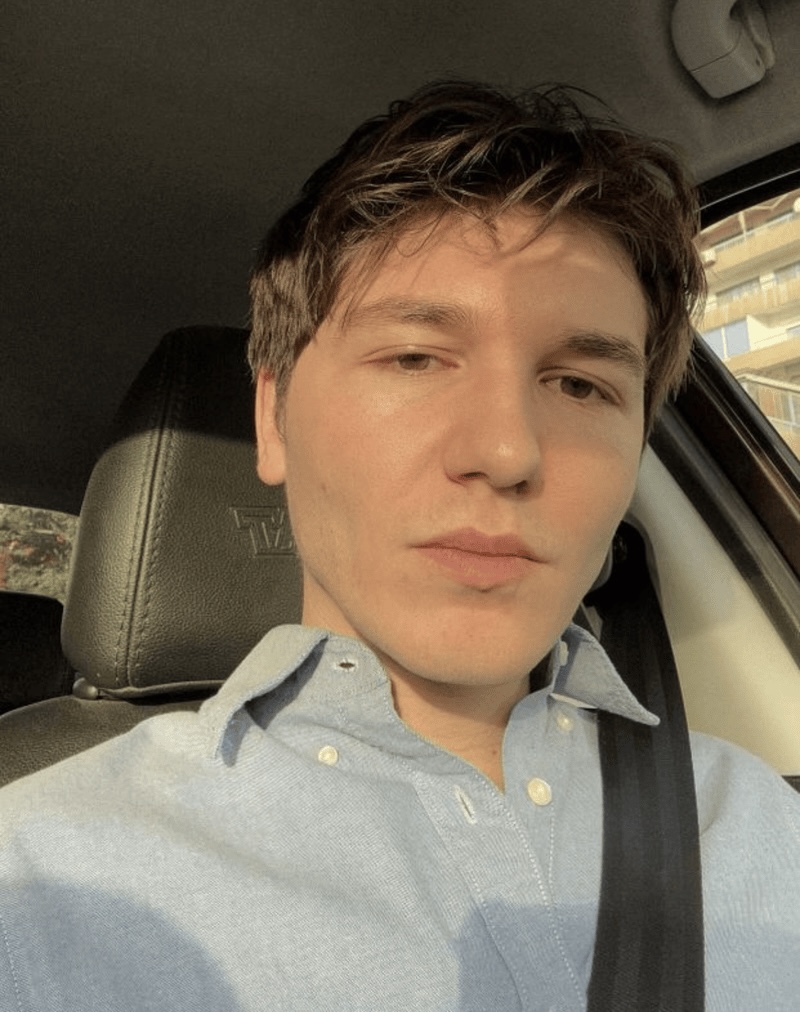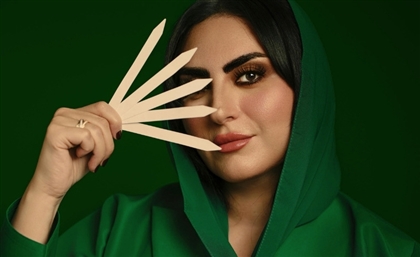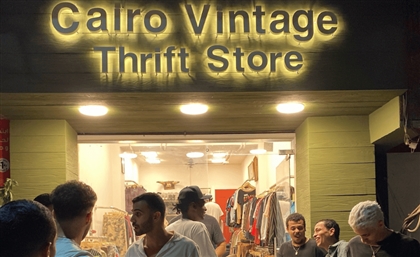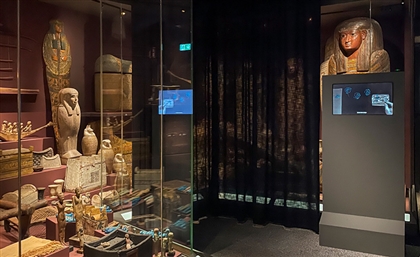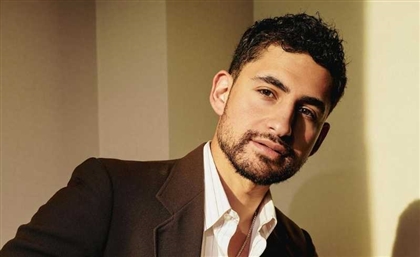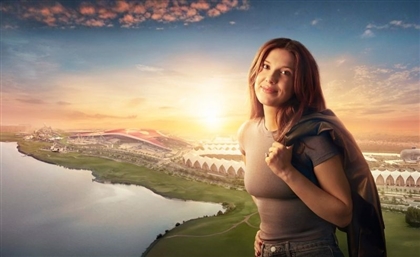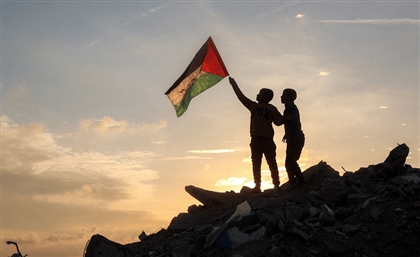Inside the American Expo Bringing Deaf Muslims Together
Where hands speak and faith flows, the annual Deaf Muslim Expo reveals a culture rooted in connection, shaped by resilience, and lived in a language all its own.
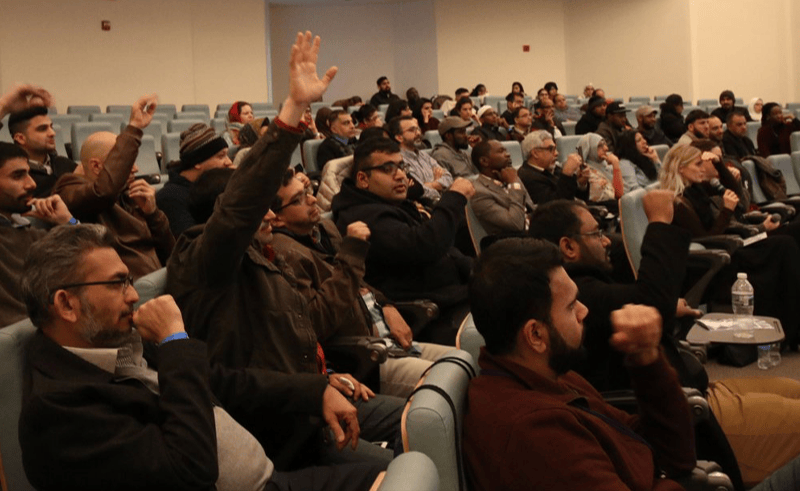
Now in its fourth year, the Deaf Muslim Expo brings deaf Muslims together in Dallas, Texas for a weekend centred on both faith and communication. The annual gathering offers Islamic teachings through sign language and creates opportunities for deaf Muslims to connect, share, and explore experiences often overlooked in mainstream religious life.
The Expo is organised by the Global Deaf Muslim Foundation (GDM), a nonprofit that supports deaf Muslims through events, resources, and interpreter access. Andaleeb Elayan, Executive Director of GDM, also volunteers with the Expo. She works full-time as an accountant during the week and devotes evenings and weekends to the organisation whenever she can.
This year’s Expo features a range of sessions - all conducted in sign language - covering faith, health, employment and more. Some are practical, like helping attendees build resumes or navigate job applications. Others focus on education, connection, and making religious knowledge accessible. Interpreters are present throughout to help bridge communication gaps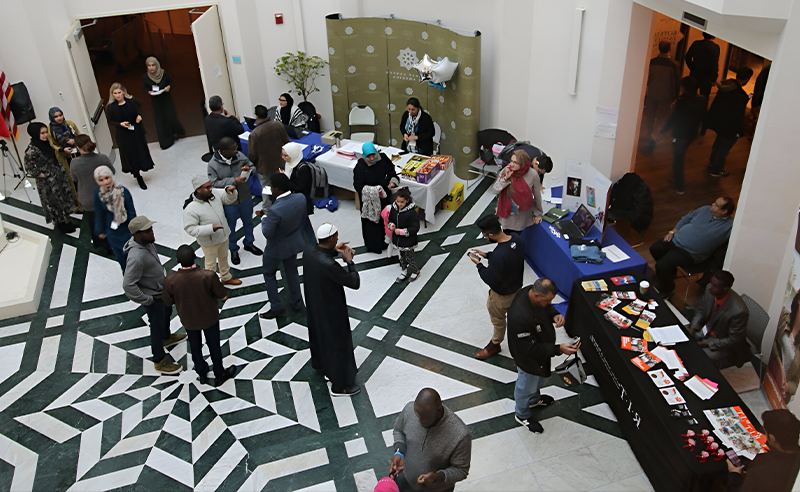
Beyond the Expo, GDM hosts events year-round to bring the community together. But organising and attending these gatherings isn’t easy. Financial strain remains one of the biggest barriers. Many deaf Muslims save whatever they can just to attend, and stable employment remains out of reach for many.
Interpreter access is another ongoing challenge. Many Muslim events still don’t offer interpreters, often leaving deaf participants unable to engage. When GDM provides its own interpreters, the cost quickly adds up. “Certified interpreters ask for a minimum of two hours, even if it’s only a one-hour event,” Elayan tells CairoScene. “So it’s usually USD 120. If it’s more than two hours, we need a team of interpreters, because they can’t interpret that long alone. It’s more money.”
Some deaf Muslims face added barriers based on background. Those from immigrant families may not speak English or the local spoken language and rely fully on sign language. This can make communication with hearing Muslims - who may only write or speak in a dominant language - especially difficult. In day-to-day life, tasks like getting a prescription, talking to a lawyer, or filling out immigration documents often require assistance. Many turn to community members and organisations like GDM for help navigating these systems.
“In Islam, we respect community. The word is ‘Omah’ - that means everyone belongs. Nobody should be left out, including people with disabilities,” Elayan says. The foundation’s work helps offer a community and belonging they may not get in other spaces.
Deaf Muslim culture is layered and unique. It blends the values of the deaf community - like eye contact, tapping, and directness - with Islamic customs that may discourage such things, especially between genders. “In hearing Muslim culture, it’s not always acceptable to touch someone to get their attention, especially between genders,” Elayan explains. “But in deaf Muslim culture, a gentle tap on the shoulder is often necessary to communicate.”
And yet, the barriers persist. Many mosques don’t offer sign language interpretation. Friday khutbahs and community lectures are rarely captioned. Islamic knowledge is often passed through oral and auditory traditions - leaving Deaf Muslims on the outside, looking for access. “Sometimes Muslim events forget to provide interpreters,” Elayan says. “So we reach out to find one. We do everything we can so others can feel more included.”
That exclusion can begin early. Without full access to language or community support, some deaf Muslims grow up without guidance on social expectations. “Some deaf people didn’t get taught manners or boundaries because they didn’t have the language early on,” she said. “We try to educate them with Islamic principles. The word is ‘adab’, which means manners. We try to teach that. We try to help each other grow.”
That effort includes addressing differences in social norms. In deaf culture, people can be more blunt or direct. That can sometimes clash with expectations in Muslim communities, where privacy is often valued more highly. Elayan said the group tries to encourage respectful interaction; avoiding gossip, respecting boundaries, and being mindful of tone and approach.
One of her favourite memories from past expos was watching people light up during conversations. “How they look very happy and enjoying. They’re asking, ‘When are you going to do this again?’” she says. “It’s how they feel, how I can see their happy faces. It makes me feel really good.”
Religion is central to the event, but it’s not limited to religion. “We have someone this year who is a deaf Muslim lawyer, a woman, and she will be speaking about how to follow your dreams,” Elayan says. “We also have someone talking about healthy food and why doing exercise is important.” Past topics have included mental health, relationships, and family dynamics.
When asked what she wishes more people understood, Elayan answers: “Don’t be afraid to approach us. Don’t say ‘I’m sorry’ when we say we’re deaf. We were born this way. Just treat us like people. It’s not an obligation. But it would mean a lot to see people trying.” Small gestures, she explains, can make a big difference - even learning to say hello in sign language helps create more connection and understanding. This year’s Deaf Muslim Expo will take place August 30th and the 31st.
- Previous Article Art D’Égypte Turns LMD Locations into Living Art Hubs
- Next Article Egypt’s ‘Kultured Glass’ Asks You to Wear Your Heart on Your Head
Trending This Week
-
Nov 19, 2025







